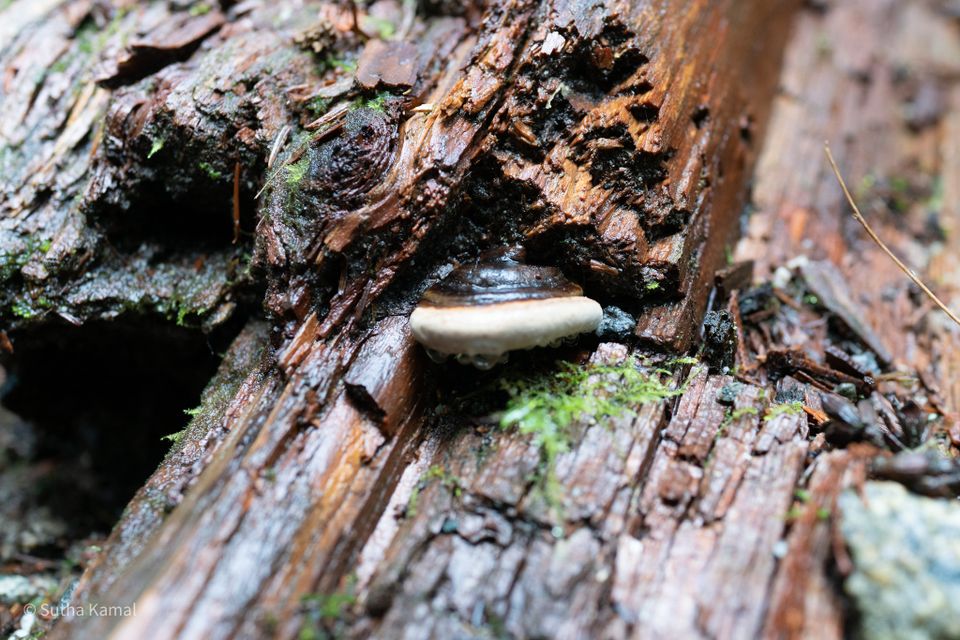Volatile role models.

“Don’t think. Feel.”
– Bruce Lee, Enter the Dragon
"Don't think you are. Know you are."
– Morpheus, The Matrix
Nature is Life’s dance, and we can understand it as a system, as fractal flows of energy and information through time and space.
We can use this perspective to understand companies, countries, people, and software systems.
Life is to Nature, as an individual ant is to the meta-consciousness of the colony. We must understand both to predict the behaviours of either.
Nature has survived, adapted, and flourished in the face of every cataclysm since life first emerged. Nature endures all the extremes of life on earth. Nature is also an unsurpassed investor: free from humans, Nature regrows ecosystems at 19% APY. “The only constant is change” is simply Nature’s Law.
What other lessons can we learn from Nature?
From time to time, Nature permits giants to emerge. T-Rex and mammoths existed for a time, optimal for their settings and huge. Perhaps for a time there was a rising return on size. Yet, while small, adaptable species often survive and adapt through cataclysms, giants often falter under evolutionary pressure. Good for humans, not for mammoths.
Consider the similarity of cancers in obesity and sclerotic organisations. Some characteristics of obesity: very many cells (many of which are extraneous), and not subject to evolutionary pressures (neither deprivation nor exertion). Each cell carries with it a random risk of cancer, but the many extraneous cells increase the total chance of cancer. It is sadly unsurprising, then, to find that obesity causes both higher incidence of cancer, as well as worse outcomes.
Now pick your favourite sclerotic, large organisation and compare: healthy cells, extraneous cells, total size, lack of evolutionary pressure. In healthy lifeforms, unproductive and cancerous cells fall to evolutionary pressure, and natural processes. We cannot live healthy lives without senescence tirelessly recycling the weakest cells that comprise our bodies. No wonder monopolists so frequently collapse when forced to compete.
When large systems (trees, mammoths, monopolies, the USSR) weaken, decay and die in the face of environmental pressures, they provide the energy that feeds the new life-forms that rise in their place. These new entities don’t strive to replicate the form of what came before them. Natural evolution doesn’t occur linearly over time; it is punctuated by moments of great stress and significant change.
The Internet has made information transfer effectively instant and free. As we will see, crypto enables value to transact effectively instantly and near-free. This will drive a more rapid decomposition of existing systems (software, monopolies) than we’ve seen before. In turn this will spark more innovation than we’ve seen before.
Nature embraces volatility.
Individual crypto assets are indeed extremely volatile, but the apparent stability of traditional markets is a deceptive and impermanent mirage.
Modern markets appear less volatile than they really are, because gatekeepers (market makers, banks, other intermediaries) smooth (and profit from) that volatility, while central bankers make other distortions. Contrast the dozen intermediaries in a stock trade (with settlement days later), with the real-time, direct-transfer-of-custody settlements enabled by decentralised exchanges.
In crypto, a tweet can move the market as quickly as emotions can push buttons on phones. It’s 24/7, realtime, and open to the whole world. Memes move markets. There’s much to write of the negative consequences of that. But it’s not necessarily worse than the entrenched oligarchs of finance.
George Soros’ essay on reflexivity explores the nature of shared beliefs and truths. When thinking about the price of an asset, everyone is trying to guess what everyone else thinks an asset will be worth. The US Dollar’s value is largely a reflection of what the world feels is true about the prospects for the US economy, plus systemic distortions. Bitcoin (and dogecoin) are worth something because of people’s emotional predictions of value. SpaceX is sending a payload to the moon, paid for in full with Dogecoin. Of course the sentiment surrounding that affects the “fundamentals” of Dogecoin: for better or worse, they are the fundamentals of Dogecoin.
Crypto is reflexive, unfiltered humanity. The world’s hopes, dreams, passions and fears. Raw emotion surfing waves of memes. The beating heart of humanity, merged with markets. With gatekeepers few and sparse.
Following Nature’s lead of fractal networks providing support, crypto will eventually provide the rails for the substantially more resilient economic system that will follow today’s.
Guns often have waiting periods, to let passions temper. Legacy banking has “T+2” stock settlement. Crypto has neither.
Crypto prices reflect the dreams, passions, and fears of humanity, without filters or release valves. Of course it seems more volatile than traditional markets, but that apparent stability is an unnatural, fleeting mirage.
Of course, it’s incumbent on us to ensure we build systems that are transparent and resilient.